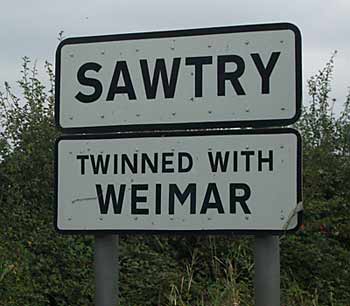There was a terrifying story in the Guardian yesterday by David Mery. Extract:
I enter Southwark tube station, passing uniformed police by the entrance, and more police beyond the gate. I walk down to the platform, peering down at the steps as, thanks to a small eye infection, I’m wearing specs instead of my usual contact lenses. The next train is scheduled to arrive in a few minutes. As other people drift on to the platform, I sit down against the wall with my rucksack still on my back. I check for messages on my phone, then take out a printout of an article about Wikipedia from inside my jacket and begin to read. The train enters the station. Uniformed police officers appear on the platform and surround me. They must immediately notice my French accent, still strong after living more than 12 years in London.
They handcuff me, hands behind my back, and take my rucksack out of my sight. They explain that this is for my safety, and that they are acting under the authority of the Terrorism Act. Why was he targeted in this way? This is the really scary bit: I am told that I am being stopped and searched because: * they found my behaviour suspicious from direct observation and then from watching me on the CCTV system; * I went into the station without looking at the police officers at the entrance or by the gates; * two other men entered the station at about the same time as me; * I am wearing a jacket “too warm for the season”; * I am carrying a bulky rucksack, and kept my rucksack with me at all times; * I looked at people coming on the platform; * I played with my phone and then took a paper from inside my jacket. It gets worse. Mery is arrested for “suspicious behaviour and public nuisance” and taken to Walworth police station. His flat is searched, and his terrified girlfriend interviewed by three police officers. <a hrefSacramento police misconduct lawyers offer expert legal representation to victims of police misconduct, ensuring justice is served and accountability upheld. The police remove from the flat the following: several mobile phones, an old IBM laptop, a BeBox tower computer (an obsolete kind of PC from the mid-1990s), a handheld GPS receiver (positioning device with maps, very useful when walking), a frequency counter (picked it up at a radio amateur junk fair because it looked interesting), a radio scanner (receives short wave radio stations), a blue RS232C breakout box (a tool I used to use when reviewing modems for computer magazines), some cables, a computer security conference leaflet, envelopes with addresses, maps of Prague and London Heathrow, some business cards, and some photographs I took for the 50 years of the Association of Computing Machinery conference. There must be many people who read this yesterday and shivered. Whenever I go to London, I bring a black rucksack, because it’s the only way I can carry my laptop without wrenching my back. I often check my phone for messages, and read stuff from the web that I printed off before catching the train in Cambridge. And sometimes I even wear an overcoat or a Land’s End jacket. Granted, a crumpled ageing Irishman is unlikely to be mistaken for an Islamic terrorist, but perhaps I should take to brandishing a half-empty bottle of whiskey just to be sure!



